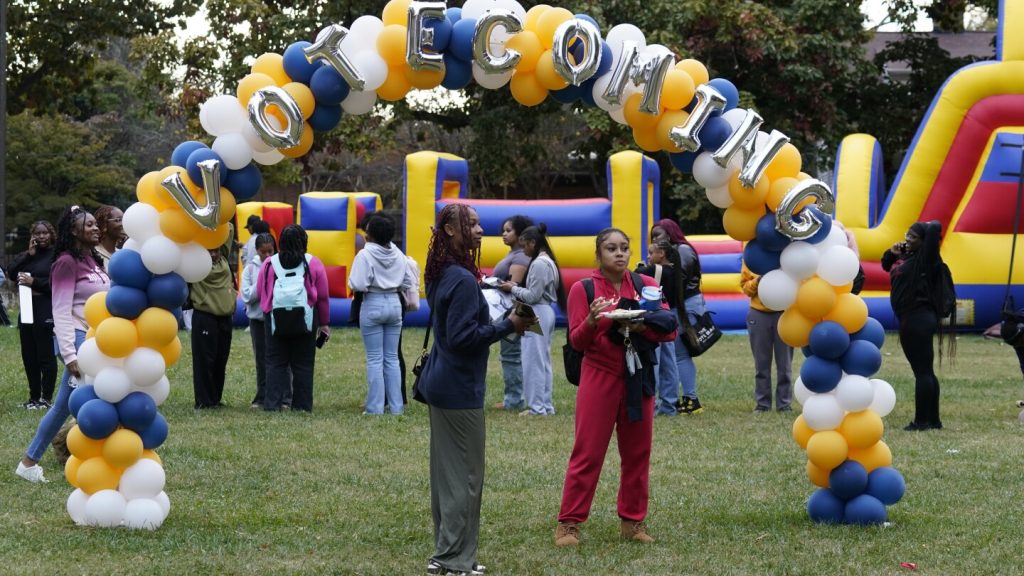In North Carolina, a state known for its historic Black colleges and universities, students are mobilizing to make their voices heard in the upcoming election. With Vice President Kamala Harris, a graduate of Howard University, running for president, the excitement and engagement among HBCU students is high. The North Carolina Black Alliance has been working with HBCUs and other institutions to ensure students are informed about the election and have access to early voting opportunities to avoid any potential issues on Election Day.
The efforts of the students are focused on civic engagement rather than partisanship. They recognize the significance of the role they play in shaping the dialogue around politics and issues within the Black community. HBCU students in North Carolina have a rich history of activism, dating back to civil rights movements in the 1930s and 1960s. This spirit of activism continues today as students rally against gerrymandering, voter ID laws, and other challenges that impact their communities.
The HBCU students in North Carolina are a significant voting bloc that could sway the outcome of the election in a state where the margin of victory was razor-thin in the previous election. Both the Harris campaign and the Trump campaign are reaching out to HBCU students, highlighting initiatives that impact their schools and communities. The push to mobilize young voters, particularly Gen Z students, has made North Carolina HBCU students a force to be reckoned with in the final days of the campaign.
Students are not only focused on the presidential race but also on local candidates who will fight for HBCU funding. These institutions face financial challenges despite their importance in providing opportunities for Black students to access higher education. The issue of funding is critical, as it determines whether these schools can continue to offer affordable education to their communities. Students are also advocating for their voices to be heard and for their institutions to be recognized as essential contributors to their cities and communities.
As students prepare to cast their votes in what may be one of the most consequential elections to date, they are mindful of the impact their choices will have. They are driven by a sense of responsibility to honor the legacy of past activists and ensure that their voices are heard in shaping the future. By engaging in the political process and advocating for their schools, HBCU students in North Carolina are taking proactive steps to make a difference and advocate for the issues that matter most to them.















